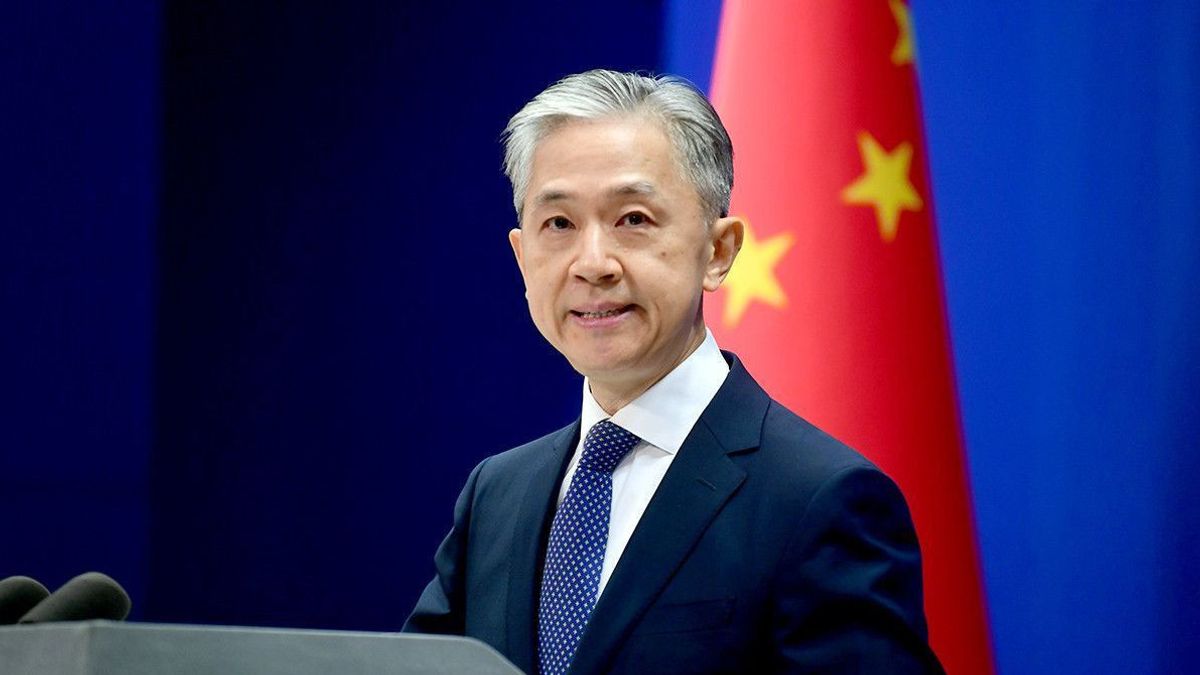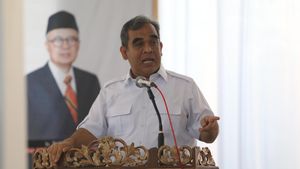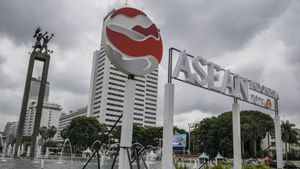JAKARTA - Chinese Foreign Ministry spokesman Wang Wenbin said his country was not afraid of Japan's threat of bringing China to the World Trade Organization (WTO) to lift Beijing's ban on imports of seafood after releasing radioactive water from the Fukushima nuclear power plant.
"We have emphasized our serious stance on Japan's issue of nuclearly contaminated water disposal into the sea on several occasions," Wang Wenbin said in a statement to the media in Beijing, China.
This was conveyed in response to Japanese Foreign Minister Yoshimasa Hayashi's statement that Japan would take "the necessary action (on China's aquatic product ban) based on various means including the WTO framework".
Complaints to the WTO are also one of the options if protests against China over diplomatic channels are ineffective, Economy Security Minister Sanae Takaichi said separately.
"Disposal of wastewater into the sea is a selfish and irresponsible measure by the Japanese government. This has been heavily criticized by the international community and relevant precautions have been taken," Wang said.
According to Wang, in accordance with the laws in force in China as well as relevant provisions in "The WTO Sanitary and Phytosanitary (SPS) Agreement" or WTO regulations regarding the implementation of food and health security for animals and plants, China's actions are in accordance with the rules.
"The authorized authority in China has taken urgent action against marine products originating from Japan. This is fully justified, reasonable and necessary," Wang stressed.
The threat of reporting to the WTO itself emerged after business people and public facilities in Japan continued to receive harassment calls from telephone numbers with the Chinese state code +86 where many callers reported complaints about the release of water in Fukushima.
Even the Japanese Embassy in Beijing was reported to have been hit by a brick as reported by Japanese Foreign Minister Yoshimasa Hayashi on Tuesday (29/8).
"I would like to reiterate that China protects the safety of foreign diplomatic and consular missions as well as the rights and interests of foreign nationals in China under applicable law. However, we request that Japan also ensure the security of Chinese diplomatic and consular missions, institutions, companies, citizens including Chinese tourists, in Japan, "said Wang.
Wang revealed that the root cause of the situation still lies in the fact that the Japanese government ignores strong criticism from the international community so that it unilaterally and forcibly dumps Fukushima nuclear wastewater into the sea.
SEE ALSO:
Japan has ignored refusal from local fishing communities and China by starting to dump nuclear waste water from PLTN Fukushima on August 24, 2023.
In the first phase, the Tokyo Electric Power Company (TEPCO) operator will dilute about 7,800 tons of processed water with seawater, and the dilute water will be issued for 17 consecutive days.
TEPCO has filled the facility, called a vertical disposal axis, with water that has been processed and diluted. Each ton of treated water is mixed with about 1,200 tons of seawater.
There are about 1.3 million tons of processed water in the TEPCO complex. The operator ran out of storage capacity, forcing Japan to throw the water into the sea.
The English, Chinese, Japanese, Arabic, and French versions are automatically generated by the AI. So there may still be inaccuracies in translating, please always see Indonesian as our main language. (system supported by DigitalSiber.id)



















